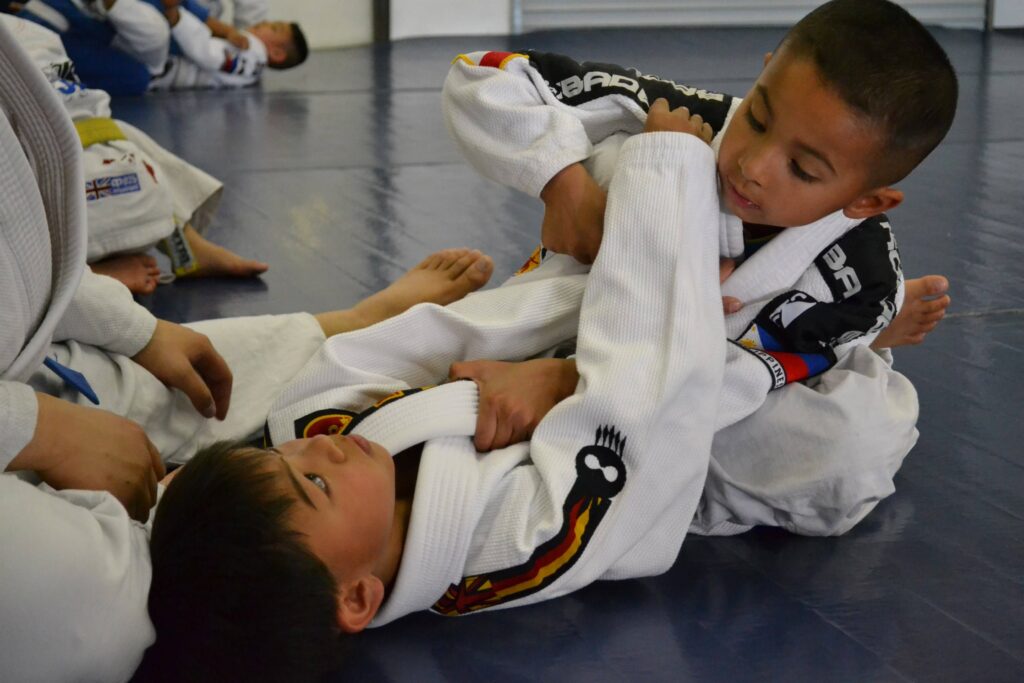Firstly – As has been stressed repeatedly, it is not the Art, but the teacher that matters, at least for young children.
Good teachers have the ability to connect with children. They respect them and do not expect them to be adults. At the same time, they understand that children have different needs.
Conrary to the popular notion, this does not mean an hour of “playtime” — even the sort of play that helps build skills.
What it really means is that a good teacher must intuitively understand that what children want from the martial arts is NOT necessarily the same as what we think they want, and often not the same as what we as parents are looking for.
The reason children gravitate towards the arts is that they are seeking a route to self-empowerment in a frightening world.
The children want to be strong, capable, and physically coordinated. They also want to become, in a very real sense, the hero of their own story.
What you should look for is a teacher that ignites that passion in the children, and then keeps consistently high expectations for focused effort and hard work, while also modeling and embodying the deeper philosophy of good martial arts practice.
I know… This is a tall order! But as others have noted, children will gravitate towards this person, and respect them on an intuitive level, in the same way hungry people move towards the smell of delicious cooking.
Secondly – The very best teachers understand that martial arts practice for children must be presented in fundamentally different ways than adult practice.
It helps if the instructors themselves are the product of a school with good children’s instruction, but as some posters here have noted, the children will teach us what they need, and they will show us what really works, in terms of good instruction.
Children’s classes need to be structured differently, with an emphasis on experiencial learning.
Classes need to incorporate extrinsic (external) rewards that reinforce children’s progress, whether the reward is in belts or stripes, or in earning the right to purchase “cool” sparring gear thorugh completing drills and forms.
Children understand the idea of earned rewards and incremental progress, but the benchmarks must be child-sized, and they must be presented in a way that makes sense to them.
The learning must also be based in a culture and atmosphere that emphasizes the very best aspects of Martial Arts training. The dojo must become a very special place for children–one with a very specific structure that enables them to learn not only physical techniques, but spirit and discipline. Children consistently adapt to their environment, and internalize the strutures aroung them.
Not only is their need for these things far greater than the need to physically defend themselves, but in a very real sense it precludes the necessity for doing so.
Children who learn the virtues of hard work, respect, teamwork and acceptance of others, along with confidence, self-discipline and how to cope productively with their fear quite simply do not need to analyze whether Judo or Tae Kwon Do are more effective. They will have become their own hero, and they will find their own Art.
Find the children a teacher who understands that, and the rest will largely take care of itself.
[thrive_link color=’green’ link=’https://selvabjj.wpengine.com/kids/’ target=’_blank’ size=’big’ align=’aligncenter’]Check Out Our Amazing Kids Program (Special Offer)[/thrive_link]
